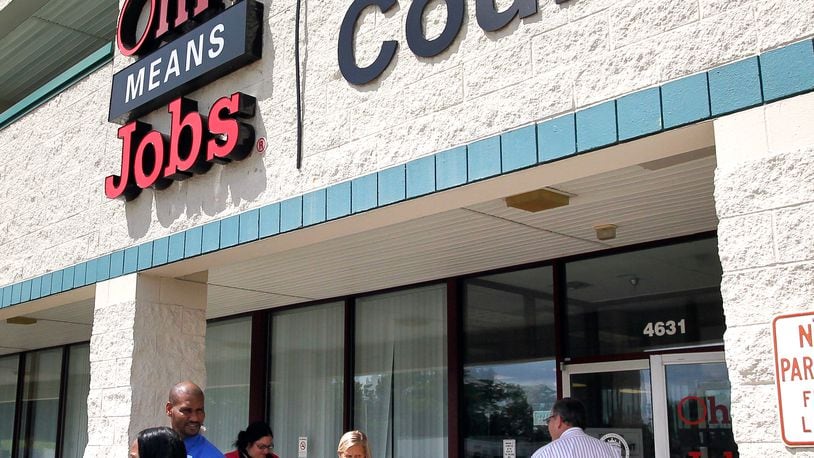When presented this week with a $1.75 million three-year contract — about $570,000 per year — with Community Behavioral Health, commissioners instead opted to extend the current contract for 90 days so they can delve into the details of a new deal.
RELATED: Program helps “hard to hire”
“It may be that this can be streamlined. I’m looking at multiple barriers to employment, and I would like to verify that there aren’t other revenue sources or programs in place for these individuals now,” Commissioner Cindy Carpenter said. “I believe it’s been four to five years since we put this sort of diversion program in place for individuals seeking public assistance. I just know that many things have changed.”
Interim JFS Executive Director Bill Morrison told the Journal-News he believes the county still needs the services CBH provides “without question,” but the character of the services has changed a bit to reflect the current unemployment situation.
“If you look at the employment picture six years ago, we were trying to find jobs for people who were unemployed,” Morrison said. “Now largely we’re trying to funnel employees to companies who need to hire. It’s a different market now than it was then, because there are a lot of jobs available, we’re just trying to align what skills individuals have with what those companies need, as opposed to just trying to find any old job at all.”
Morrison said he met with CBH this week and was told they have adapted to the changes, but he believes the new contract needs to reflect those changes more clearly. He has set up a series meetings with the provider to clarify the arrangement.
Laura Sheehan, vice president of Behavioral Health for Community First Solutions, said from March 2016 through January they served 853 clients and currently have a job retention rate of 69 percent. She agreed things have changed in recent years and they have adjusted their programs accordingly.
They don’t just provide help with medical and mental illness issues, but offer a whole spectrum of barrier breaking assistance.
“Several years ago when the job market was depressed, employers were willing to hire and train individuals them for a job. In today’s job market employers can be more selective in their hiring and are looking for candidates who already have education and experience. We connect the clients with GED classes and additional training so they may be best prepared for employment,” Sheehan said.
“We also know that a barrier to employment for many is consistent transportation to and from work. To remove this barrier, we have now we have partnered with BCRTA to ensure clients have the ability to get to work.”
Morrison says changes at the public assistance agency are also in the offing.
“We’ve begun a process of looking at how does public assistance function, how is it connected with workforce development. I’ve described to the staff that the goal of everything we do has to be to provide reasonable, temporary assistance to people and families going through crisis, while preparing them for the dignity of work,” Morrison said.
Carpenter mentioned the new programs Morrison has instituted at Children Services, like resurrecting the Family Preservation, have worked and she hopes the same can come true for the rest of the agencies.
MORE: Children Services furthers goal of keeping kids out of custody
Morrison took over as interim director of the whole social services agency in December when former Executive Director Ray Pater went on leave and subsequently resigned.
Commissioner Don Dixon with the recent and in some cases sudden changes at JFS — former JFS Assistant Director Jerome Kearns died suddenly before Christmas — he wants to make sure expensive contracts like this have been fully vetted. He said the price tag on the contract was what gave him pause about approving the new deal.
“We’ve just had a change over up there and we just want to make sure that everybody has looked at it and it does do what it’s supposed to do,” he said.
RELATED: JFS director resigns
About the Author
